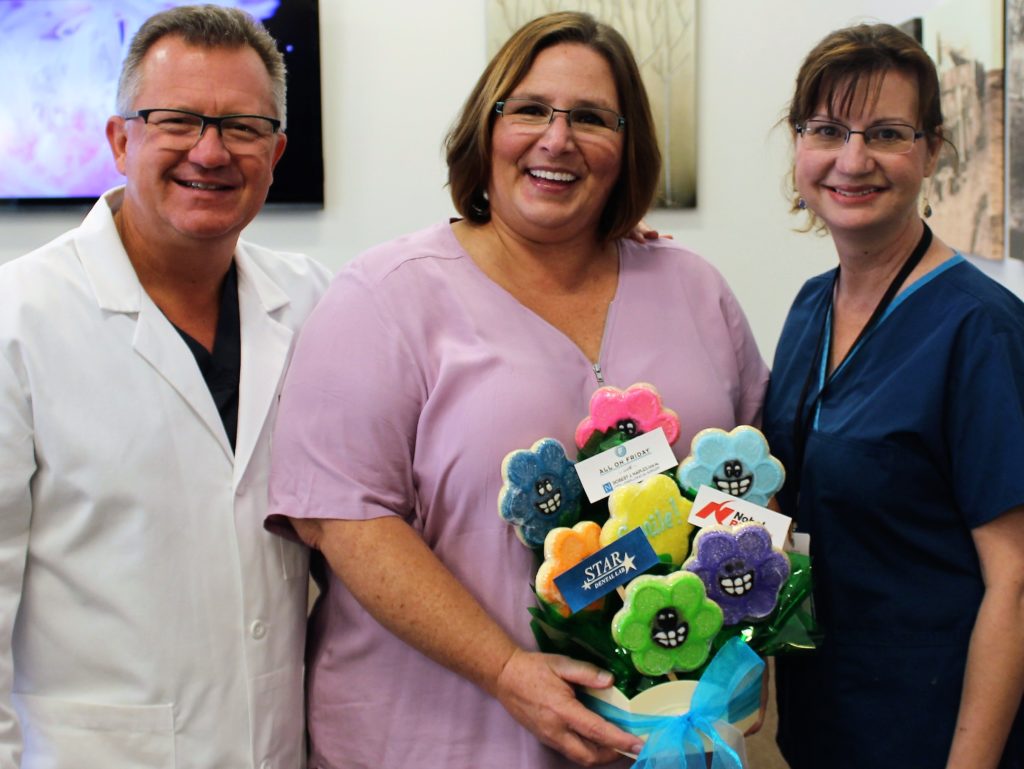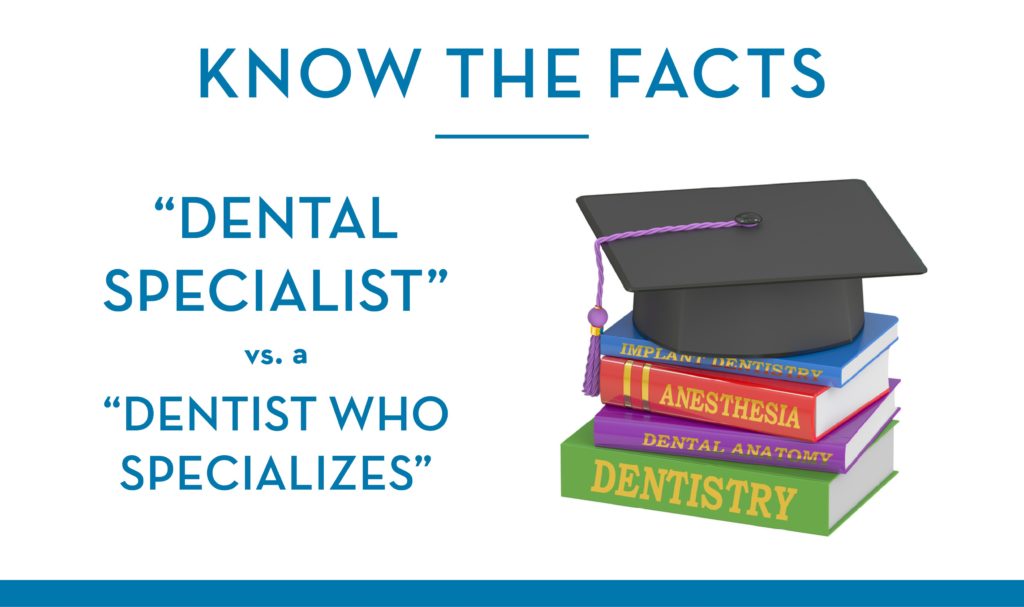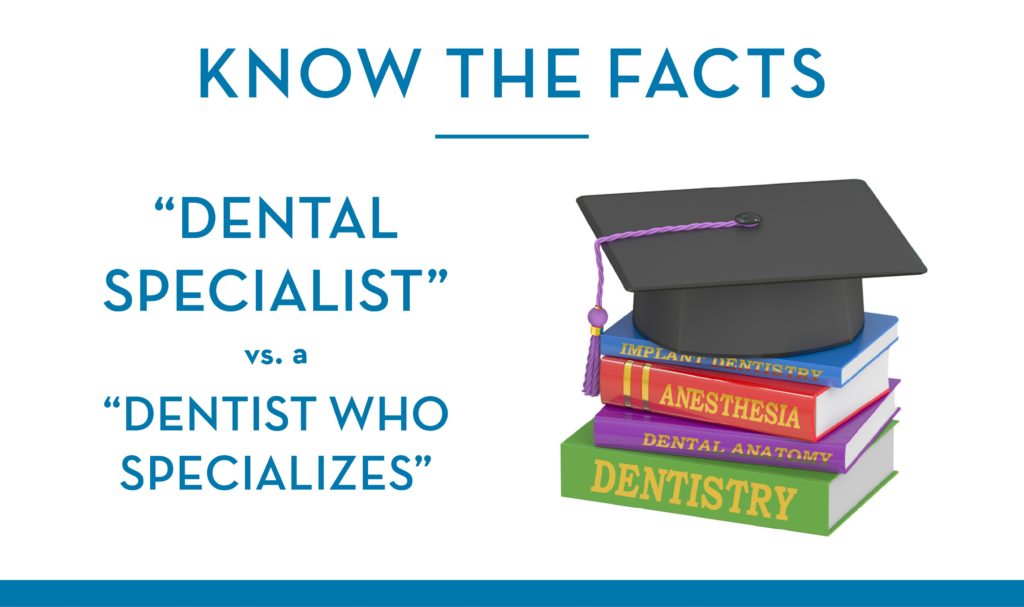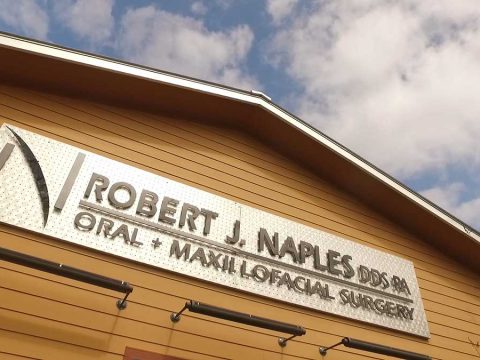
New Smiles Contest Update
May 26, 2017
New Smiles Contest Update
September 19, 2017Know the Facts: “Dental Specialist” vs. a “Dentist who Specializes”
As a dental patient, you have access to many innovative procedures, from dental implants that may improve your smile and ability to eat and speak, to restorative or reconstructive surgery, to adult braces made from clear, almost invisible materials.
You also have many options when choosing a professional to provide a dental service. It is important to note that not all dentists are created equal. It is to your benefit to understand the distinction between a “Dental Specialist” and a “dentist who specializes”, as it could affect the outcome of your dental procedure.
What is a Dental Specialist?
There are many dentists who say they specialize in a particular procedure. Their level of experience with said procedure may vary greatly from dentist to dentist. In contrast, Dental Specialists are dentists who, after completing general dental school, pursue a specialization by completing a multiple-year residency in a specific dental specialty area. The American Dental Association’s Council on Dental Education and Licensure currently recognizes only nine dental specialties:
- Dental Public Health Endodontics
- Oral and Maxillofacial Pathology
- Oral and Maxillofacial Radiology
- Oral and Maxillofacial Surgery
- Orthodontics and Dentofacial Orthopedics
- Pediatric Dentistry
- Periodontics
- Prosthodontists
What You Should Know Before Scheduling a Dental Procedure
We know that you have a desire to make informed decisions about your own and your family’s health care. Thus, we recommend asking the following questions before selecting a dental professional for any specialized procedure such as wisdom teeth removal, dental implants, root canals, or orthodontics:
1. Are you a trained [oral and maxillofacial surgeon, periodontist, orthodontist, etc]?
If not, what training have you had in performing this procedure?
2. How many of these procedures have you performed in the last six months?
3. What are the possible complications of this procedure?
4. If there are complications, how do you address them?
5. Will anesthesia be used for this procedure? If yes, who will administer the anesthetic? Who will monitor me during the procedure? What are your emergency capabilities and procedures?
6. What is your rate of success for this procedure?
Dental Specialization: Oral and Maxillofacial Surgeons
Following dental school, oral and maxillofacial surgeons surgically train for a minimum of four years in a hospital-based residency program.
All oral and maxillofacial surgeons are trained and skilled in diagnosing and surgically treating a number of conditions, including the removal of third molars and other diseased teeth, dental implant surgery, diagnosis and treatment of oral, head and neck cancer, corrective jaw surgery, temporomandibular jaw surgery, and surgical treatments for obstructive sleep apnea, among others.
Dr. Naples completed a prestigious OMS Fellowship at Emory University followed but a four-year training program in oral & maxillofacial surgery at the Medical University of South Carolina. Additionally, Dr. Naples completed a full year of anesthesia training as part of his OMS residency.
For more information about Dr. Naples’ training and background, please visit our Meet the Doctor and FAQ pages, or speak to any of our Team in the Naples office!
Source: Texas Society of Oral and Maxillofacial Surgeons





